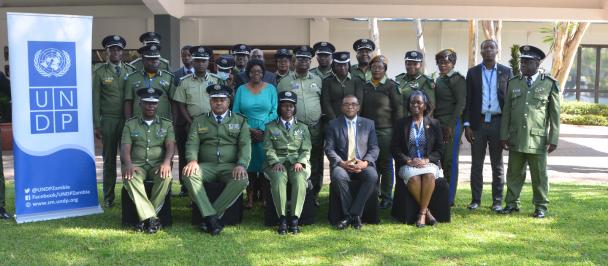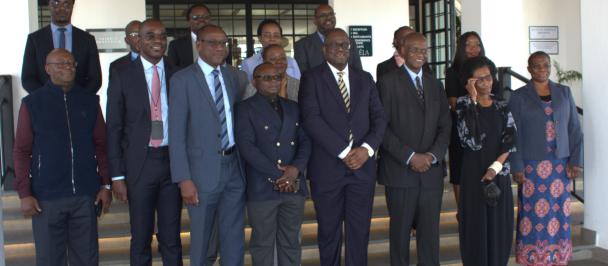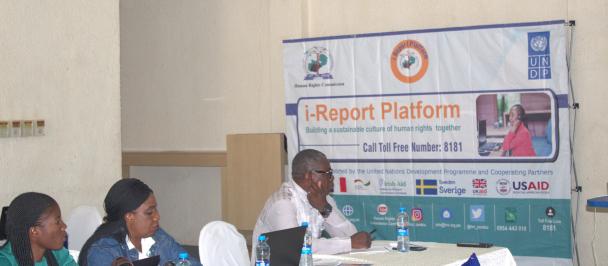Making Election Observation Recommendations Count: UNDP Support to the Inter Agency Working Group
August 9, 2023
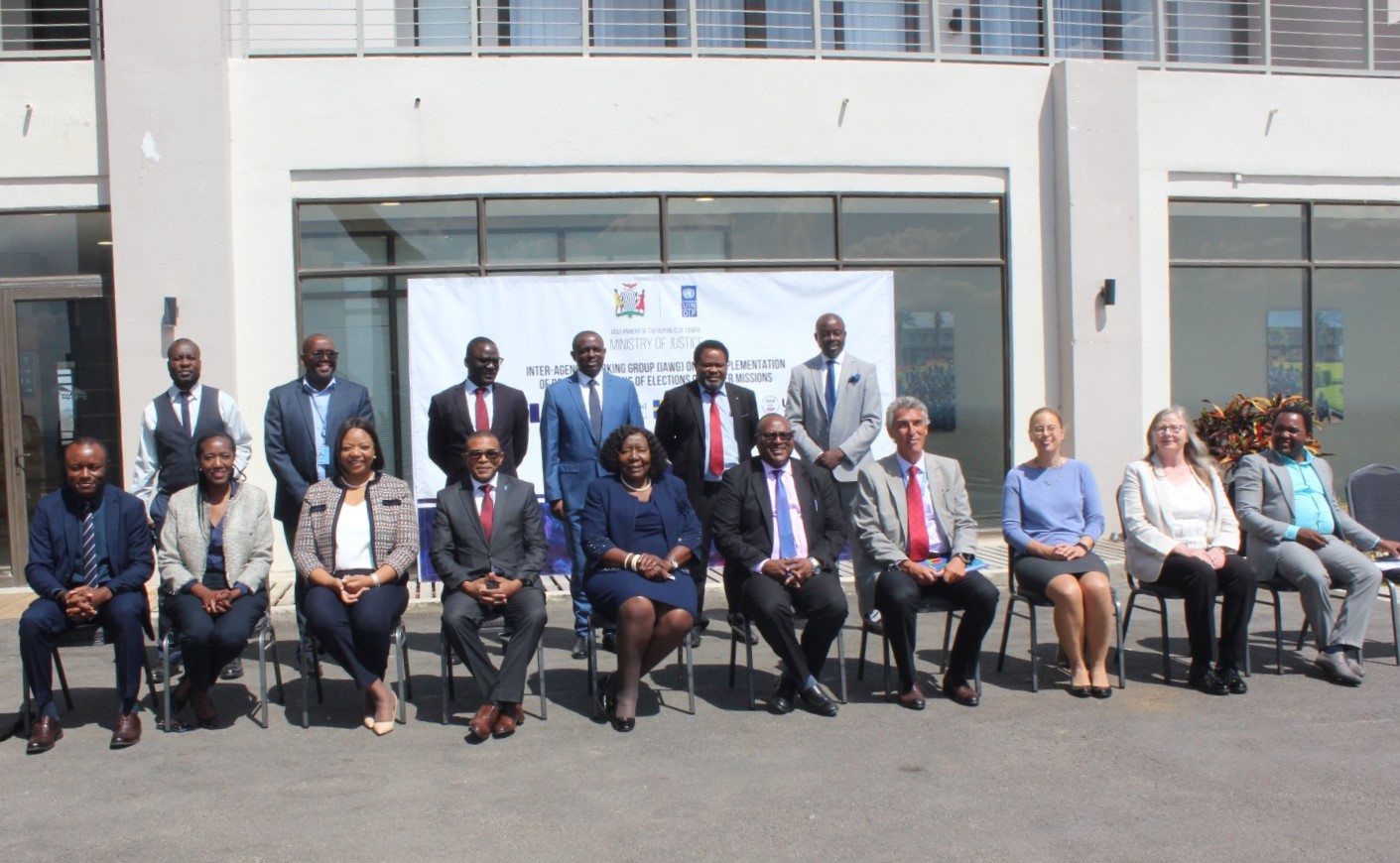
Launch of the IAWG at Legacy in Chongwe
August 09, 2023. The Ministry of Justice with the support of UNDP’s Democracy Strengthening in Zambia Project (2020-2023) has established the Inter-Agency Working Group (IAWG) on implementation and reporting on Election Observer Mission (EOM) recommendations. The IAWG has been established by the Ministry out of the realisation that in each electoral cycle, several EOM reports are prepared and handed over to Government and stakeholders on the assumption that the relevant institutions would identify their areas of action for implementation. Yet, from the 2016 general elections and in the 2021, very few, if any, of the recommendations from the EOMs have been implemented.
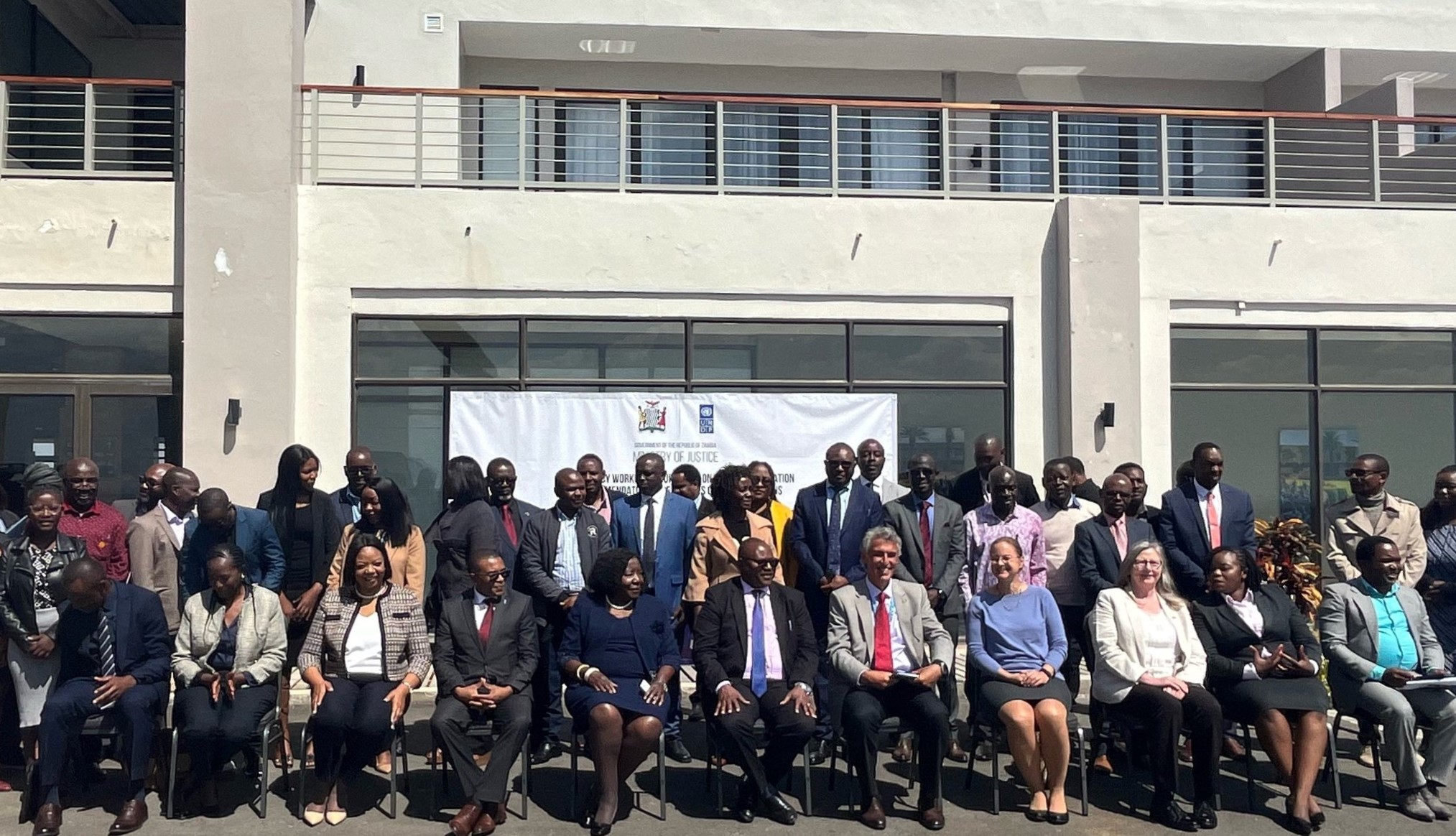
Hon. Mulambo Haimbe, SC, MP, Mr. James Wakiaga, UNDP Resident Representative, Mrs Mwangala Zaloumis, ECZ Chairperson and Mr. Claudia Bacigalupi-EU Head of Cooperation pose for a picture with officials and participants after the launch of the IAWG at Legacy in Chongwe
The IAWG was officially launched by the Honourable Minister of Justice, Mr. Mulambo Haimbe, SC, MP at Legacy Resort in Chongwe. In his address the Minister Haimbe, stated that the government had settled on creation of the IAWG as a structured response to methodically take on board EOM recommendations towards administrative, policy and legal reforms.
Echoing His Excellency President Hakainde Hichilema’s remarks when opening the 13th National Assembly, the Minister emphasised that “promoting and entrenching the tenets of our democracy cannot just be wished into existence, but through structured efforts such the IAWG we are launching today is what can actualise and keep alive Zambia dream of continuing as a beacon of democracy in Africa and the globe”.
Speaking at the event, the UNDP Resident Representative, Mr. James Wakiaga welcomed the government’s decision to establish IAWG as a testament to Zambia’s rich democratic credentials in the region. He stated that the establishment and launch of IAWG and the important work it is expected to perform was the culmination of the 4-year support by UNDP’s Democracy Strengthening in Zambia (DSZ) project, with the financial assistance of the European Union, the embassies of France, Germany, Ireland, Sweden, the United Kingdom’s Foreign and Commonwealth Office, and the United States Agency for International Development.
Mr. Wakiaga noted the issues highlighted by the EOMs were not new but were critical to Zambia and the UN in general as outlined in the Decade of Action for Agenda 2030. The identified issues were critical to the country’s achievement of Sustainable Development Goals target 5.5 on “…women’s full and effective participation and equal opportunities for leadership at all levels of decision-making in political, economic and public life” and Sustainable Development Goal target 16.7 on “responsive, inclusive, participatory and representative decision-making at all levels.”
The mandate of the IAWG is to coordinate reporting on the actions taken by responsible ministries and institutions on implementing the recommendations made by EOMs on the Zambia 2021 general elections, including challenges encountered in operationalising them. At least eight EOMs submitted comprehensive reports containing some 251 recommendations for consideration by the Government and other electoral stakeholders. The IAWG will work with relevant line ministries, specialised state entities such as the Electoral Commission of Zambia, Parliament, the Judiciary, Human Rights Commission as well as faith-based organisations and civil society.

 Locations
Locations

